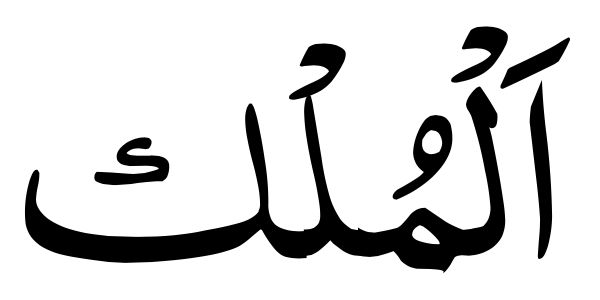

(Revealed before Hijrah)
With this Surah begins a series of Chapters, extending to the end of the Qur’an, which were revealed before Hijrah with the solitary exception of Surah An-Nasr which, though belonging to the Medinite period, was actually revealed at Mecca on the occasion of the Holy Prophet’s Last Pilgrimage. The whole of the Qur’an being God’s own revealed Word is simply inimitable and inapproachable in subject-matter, style and diction but the Chapters revealed at Mecca in the early years of the Prophet’s Call possess a majesty and grandeur, all their own. The beauty of rhythm and the charm of cadence of the revelations of this period are beyond human power adequately to describe. As these Chapters generally deal with matters of belief and doctrine, e.g., prophecies about the great and glorious future of Islam, Existence of God and His attributes, Revelation, Resurrection and Life after death, much symbolism has necessarily been used to describe the mystical and the spiritual in terms of what we can perceive by our physical senses. This Surah belongs to the middle Meccan period—8th year of the Call being the approximate time when, according to competent authorities, it was revealed.
As stated above, the Meccan Surahs generally deal with matters of belief. The present Surah naturally opens with proclaiming the Lordship, Sovereignty and Almightiness of God, and as proof of these Divine attributes adduces the fact that God is the Creator of life and death and of the whole universe through whose component parts, from the smallest atom to the largest planet, there runs a wonderful and flawless design and arrangement. The creation of the universe and the beautiful order that pervades the cosmos are proofs positive of the fact that God is and that He has created man to serve a sublime object and to achieve a noble goal. But man, in his perversity and ingratitude has always rejected God’s Message and consequently has incurred His displeasure. The Surah recounts the manifold Divine blessings and favours without which man cannot exist for a single moment and, by implication, calls upon him to make proper use of them for the realization of the purpose for which he has been created. It closes with a beautiful homily, thereby bringing home to man the supreme truth that just as no physical life can exist without water, so spiritual life, too, needs for its sustenance the heavenly water of Divine revelation.